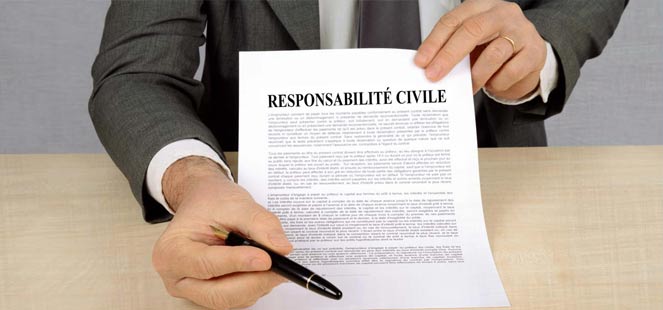How can we avoid civil liability?

Article 1457 of the Civil Code of Quebec imposes an obligation on all persons of sound mind not to cause injury to others through their own fault, as explained in the blog “One’s Civil Liability“. In principle, if this obligation is not respected, the person will be required to repair the damage.
However, in certain cases, the person liable for the damage can be totally or partially exonerated from civil liability, or even share it with another person.
1. The victim’s behaviour
The victim’s fault, common in its effects with that of the perpetrator, leads to a sharing of liability. In effect, the victim should not receive full compensation if he or she is partly liable for the loss suffered. In other words, the greater the victim’s fault, the greater his or her share of liability for the loss.
2. The theory of risk acceptance vs. exclusion or limitation of liability notices
Although a notice cannot exclude or limit the obligation to make reparation to third parties, such a notice can constitute a warning of danger (article 1476 C.c.Q.). This is the case when the victim accepts the risks associated with an activity involving a level of risk of inherent danger. The victim must be duly aware of the risks and have accepted them, hence the importance of properly disclosing them. Such acceptance does not automatically entail the loss of the victim’s right of recourse, but it can considerably harm his or her chances of success.
3. Superior force
Superior force is the claim that, although the loss is the result of your fault, you cannot be held liable for it since it is the result of an event beyond your control. Superior force is defined as an unforeseeable event (an event that could not be foreseen), irresistible (an event that could not be prevented) and beyond your control (that you did not cause).
For example, a natural disaster, an exceptional climatic event, or a fire can be cases of superior force.
4. Fault of a third party
This can be a situation where the act of a third party has contributed to the damage. In this case, two or more persons are at fault and share liability according to their share of liability. However, the obligation to compensate the victim is joint and several.
It may also be a situation where the commission of a subsequent fault completely breaks the causal link between the initial fault and the prejudice suffered by the victim of this fault, this is the theory of novus actus interveniens. Novus actus interveniens is established when one event occurs after another and has the effect of breaking the causal link that might have existed with the first event.
These are the most frequent means of exoneration, but certain special provisions may apply in specific cases. It is therefore essential to contact a lawyer if your civil liability is at stake.